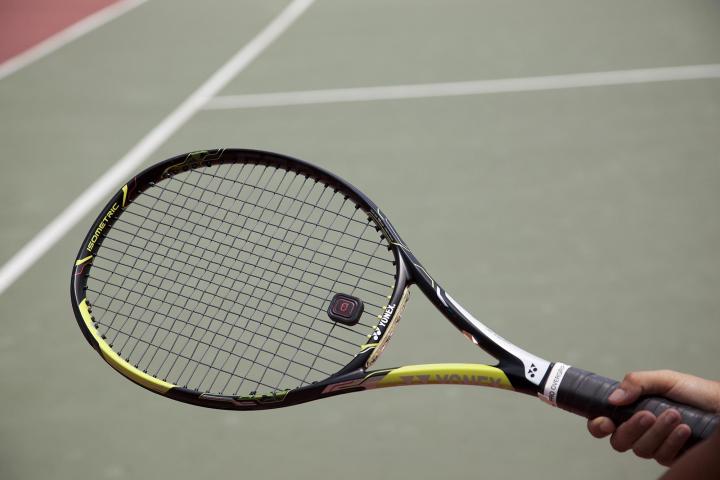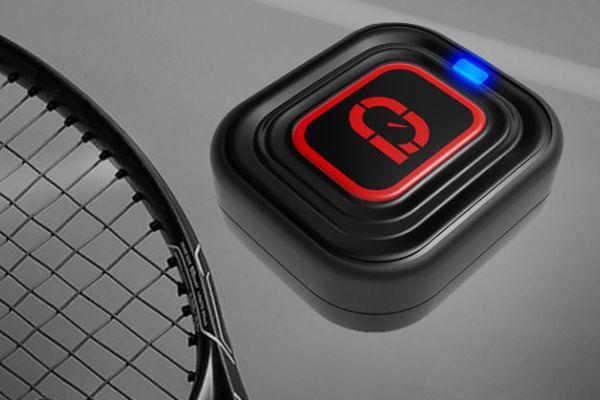
The little eight-gram square fits any racket, attaching below the first string, right above the bridge with its own twist-locking mechanism. Qlipp reads shot type, speed, spin, and ball contact accuracy plus consistency. It knows where you catch the ball with your racket, and how often you hit the sweet spot right in the center. Even though it’s the lightest tennis sensor out right now, it doubles as a shot dampener, reducing strain on your hardest strokes. The sensor is designed to last about four hours, and takes about an hour and a half to charge.
Keep your iOS or Android phone within 50 meters, and the free Qlipp app will pick up the data via Bluetooth Low Energy in real-time, so you can check your progress during practice. The app can even shout info out to you, so you don’t have to run to the sidelines to check your phone for shot data. If you use your smartphone to catch video of your gameplay, the Qlipp will sync the stats on your shots with the image. Analyze your form in slow motion and save each session so you can track your improvement.

The app also links with other sensors (FitBit, MIO), so you can get a broader picture of your overall fitness. The average tennis sensor app might not pick up that you ran ten miles before you hit the court, but Qlipp shows you that info in one place.
Of course, Qlipp lets you brag or share stats and videos on your favorite social platform, too. You can compare yourself with other players using Qlipp, set up matches, and keep challenging yourself. Leaderboards are an excellent motivational tool.
9 Degrees Freedom, the Singapore design think-tank that designed the Qlipp, is asking for thirty grand in funding to take the prototype to the next level, building the mold, purchasing materials, and securing FCC and CE Bluetooth compatibility certification. The company plans to ship in the third quarter of 2015 and retail for $130. If you haven’t committed to another tennis sensor like Zepp’s or Sony’s yet, you can pick one up on the Qlipp Indiegogo page for $80.
Editors' Recommendations
- Your Oura Ring is getting a major new health feature
- Your Apple Watch’s SpO2 sensor might be a lot better than you thought
- Ecovacs’ new Deebot X1 cleans your home and itself
- Swann dives into home security with new video doorbell and window sensor
- Apple adds new colors for the HomePod Mini to brighten your day


